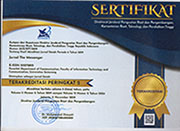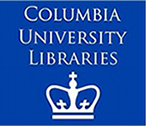Religious Populism in Mainstream Media between Indonesia and India
Abstract
Introduction: The mainstream media used political and media logic on religious populism to reinforce ideological changes in contemporary society. This study investigated how media mediatize the 212 rally (aksi 212) and the 2017 Jakarta Governorial Election as religious populism cases. This study also compared how media in Indonesia and India delivered the content based on the majority identity.
Methods: This study applied a qualitative approach. Detik.com, Metro TV, and Republika Daily were selected based on their delivery content platform and media ownership. The qualitative content analysis was applied to explore the concepts of political and media logic. Then, the results of Islamic populism in Indonesia were compared with Hindu populism in India.
Findings: This study found that the three media mediatized aksi 212 and the 2017 Jakarta Governorial Election as religious populism by using direct interaction. Detik.com was applying media logic while Metro TV and Republika Daily performed political logic. In comparing religious populism between Indonesia and India, the finding confirmed that populism came from a major identity. The finding showed that economic motivation could be escalated in parallel with religious identity.
Originality: This study become a novelty since no previous studies investigate the different delivery content platforms and the media ownership including comparing the mediatization process between two countries. Previous studies focused on the media concentration based on media ownership, platform, media landscape, and media policy without a mediatization process and religious populism. The previous studies of the mediatization of religious populism were conducted in a single case.Keywords
Full Text:
PDFReferences
Al Jazeera. (2017). Jakarta governor Ahok found guilty of blasphemy. Al Jazeera. https://www.aljazeera.com/news/2017/5/9/jakarta-governor-ahok-found-guilty-of-blasphemy
Alonso-Mu ±oz, L., & Casero-Ripoll ©s, A. (2020). Populism Against Europe in Social Media: The Eurosceptic Discourse on Twitter in Spain, Italy, France, and United Kingdom During the Campaign of the 2019 European Parliament Election. Frontiers in Communication, 5(August), 1 12. https://doi.org/10.3389/fcomm.2020.00054
Anggoro, A. S. (2012). Detikcom: Legenda Media Online. Buku Kita.
Apahideanu, I. (2014). Unicameralism versus Bicameralism Revisited The Case of Romania. Romanian Political Science Review, 7(1), 47 88. https://nbn-resolving.org/urn:nbn:de:0168-ssoar-446351
Ayuningtyas, R., & Alif, M. G. (2009). Strategi Metro TV: Menghadapi persaingan di industri pertelevision nasional (sebuah studi kasus). Journal of Business Strategy and Execution, 2, 50 62. https://journal.binus.ac.id/index.php/JBSE/article/view/194
Aziz, N. (2017). Bersifat politis , NU dan Muhammadiyah tidak ikuti aksi 212 di depan DPR - BBC News Indonesia. https://www.bbc.com/indonesia/indonesia-39026197
Bachmann, P., Eisenegger, M., & Ingenhoff, D. (2022). Defining and Measuring News Media Quality: Comparing the Content Perspective and the Audience Perspective. International Journal of Press/Politics, 27(1), 9 37. https://doi.org/10.1177/1940161221999666
Barton, G., Yilmaz, I., & Morieson, N. (2021). Religious and pro-violence populism in Indonesia: The rise and fall of a far-right islamist civilisationist movement. MDPI Religions, 12(6), 1 22. https://doi.org/10.3390/rel12060397
BBC News. (2017). Jakarta governor Ahok found guilty of blasphemy. BBC News. https://www.bbc.com/news/world-asia-39853280
Bengtsson, M. (2016). How to plan and perform a qualitative study using content analysis. NursingPlus Open, 2, 8 14. https://doi.org/10.1016/j.npls.2016.01.001
Bergem, I. M. (2022). Leaving the Discursive Definition of Populist Social Movements: The Case of the Yellow Vest Movement. Political Studies. https://doi.org/10.1177/00323217211063727
Block, E., & Negrine, R. (2017). The populist communication style: Toward a critical framework. International Journal of Communication, 11(1), 178 197. https://ijoc.org/index.php/ijoc/article/view/5820
Brown, K., & Mondon, A. (2021). Populism, the media, and the mainstreaming of the far right: The Guardian s coverage of populism as a case study. Politics, 41(3), 279 295. https://doi.org/10.1177/0263395720955036
Caiani, M., & Carvalho, T. (2021). The use of religion by populist parties : the case of Italy and its broader implications. Religion, State & Society, 49(3), 211 230. https://doi.org/10.1080/09637494.2021.1949935
Chakravarty, S., Fonseca, M. A., Ghosh, S., Kumar, P., & Marjit, S. (2019). Religious fragmentation, social identity and other-regarding preferences: Evidence from an artefactual field experiment in India. Journal of Behavioral and Experimental Economics, 82, 101451. https://doi.org/10.1016/j.socec.2019.101451
CNN Indonesia. (2018). Aksi 212, dari Mulut Ahok ke Reuni Aroma Pilpres. https://www.cnnindonesia.com/nasional/20181201121150-20-350369/aksi-212-dari-mulut-ahok-ke-reuni-aroma-pilpres
Cochrane, J. (2017). Jakarta Governor Concedes Defeat in Religiously Tinged Election - The New York Times. https://www.nytimes.com/2017/04/19/world/asia/jakarta-election-ahok-anies-baswedan-indonesia.html
Couldry, N., & Hepp, A. (2013). Conceptualizing mediatization: Contexts, traditions, arguments. Communication Theory, 23(3), 191 202. https://doi.org/10.1111/comt.12019
Cushion, S., Thomas, R., Kilby, A., Morani, M., & Sambrook, R. (2016). Interpreting the media logic behind editorial decisions: Television news coverage of the 2015 U.K. general election campaign. https://doi.org/10.1177/1940161216664726
Dehanas, D. N., & Shterin, M. (2018). Religion and the rise of populism. Religion, State & Society, 46(3), 177 185. https://doi.org/10.1080/09637494.2018.1502911
Di Tella, T. S. (2008). Populism. In W. Outhwhite (Ed.), Kamus lengkap pemikiran sosial modern. Kencana Prenada Media Group.
Flew, T., & Iosifidis, P. (2020). Populism, globalisation and social media. International Communication Gazette, 82(1), 7 25. https://doi.org/10.1177/1748048519880721
Fraune, C., & Knodt, M. (2018). Sustainable energy transformations in an age of populism, post-truth politics, and local resistance. Energy Research and Social Science, 43(May), 1 7. https://doi.org/10.1016/j.erss.2018.05.029
Freedman, D. (2018). Populism and media policy failure. European Journal of Communication, 33(6), 604 618. https://doi.org/10.1177/0267323118790156
Gerbaudo, P. (2018). Social media and populism: an elective affinity? Media, Culture and Society, 40(5), 745 753. https://doi.org/10.1177/0163443718772192
Grinberg, N. (2022). From populism to neoliberalism: The political economy of Latin American import-substitution industrialization: Argentina, Brazil, Mexico and Colombia in comparative perspective. Latin American Perspectives, 49(2), 183 206. https://doi.org/10.1177/0094582x211063503
Guion, L. A. (2002). Triangulation: Establishing the validity of qualitative studies (pp. 1 3). Department of Family, Youth and Community Sciences, Florida Cooperative Extension Service, Institute of Food and Agricultural Sciences, University of Florida. https://sites.duke.edu/niou/files/2014/07/W13-Guion-2002-Triangulation-Establishing-the-Validity-of-Qualitative-Research.pdf
Hadiz, V. R. (2016). Islamic populism in Indonesia and the Middle East. Cambridge University Press.
Hadiz, V. R. (2017). Indonesia s year of democratic setbacks: Towards a new phase of deepening illiberalism? Bulletin of Indonesian Economic Studies, 53(3), 261 278. https://doi.org/10.1080/00074918.2017.1410311
Hameleers, M., Bos, L., & Vreese, C. H. De. (2017). The Appeal of media populism: The media preferences of citizens with populist attitudes. Mass Communication and Society, 20(4), 481 504. https://doi.org/10.1080/15205436.2017.1291817
Hammarberg, K., Kirkman, M., & De Lacey, S. (2016). Qualitative research methods: When to use them and how to judge them. Human Reproduction, 31(3), 498 501. https://doi.org/10.1093/humrep/dev334
Hara, A. E. (2018). Populism in Indonesia and its threats to democracy. Advances in Social Science, Education and Humanities Research (ASSEHR),Third International Conference on Social and Political Sciences (ICSPS 2017), 129(ICSPS 2017), 106 111. https://doi.org/10.2991/icsps-17.2018.23
Hepp, A., Hjarvard, S., & Lundby, K. (2015). Mediatization: theorizing the interplay between media, culture and society. Media, Culture and Society, 37(2), 314 324. https://doi.org/10.1177/0163443715573835
Hjarvard, S. (2012). Doing the right thing: Media and communication studies in a mediated world. Nordicom Review, 33(Supplement 1), 27 34. http://www.nordicom.gu.se/sites/default/files/kapitel-pdf/358_hjarvard.pdf
Honorene, J. (2017). Understanding the role of triangulation in research. Scholarly Research Journal for Interdisciplinary Studies, 4/31(April), 91 95. https://sites.duke.edu/niou/files/2014/07/W13-Guion-2002-Triangulation-Establishing-the-Validity-of-Qualitative-Research.pdf
Hopster, J. (2021). Mutual affordances: the dynamics between social media and populism. Media, Culture and Society, 43(3), 551 560. https://doi.org/10.1177/0163443720957889
Iosifidis, P., & Wheeler, M. (2018). Modern political communication and web 2.0 in representative democracies. Javnost, 25(1 2), 110 118. https://doi.org/10.1080/13183222.2018.1418962
Irwansyah. (2020). The social contractual utilitarianism of a digital village in rural Indonesia. Technology in Society, 63(November), 101354. https://doi.org/10.1016/j.techsoc.2020.101354
Irwansyah, & Hardiah, S. (2020). Digital collaboration in teaching and learning activities: The reflexivity study on educational digital empowerment. International Journal of Learning, Teaching and Educational Research, 19(10), 355 370. https://doi.org/10.26803/IJLTER.19.10.20
Lim, M. (2011). @crossroads: Democratization & corporatization of media in Indonesia. https://cspo.org/legacy/library/1205091216F71753673BI_lib_IndonesiaMedia.pdf
Manucci, L. (2017). Populism and the media. In C. R. Kaltwasser, P. Taggart, P. O. Espejo, & P. Ostiguy (Eds.), The Oxford Handbook of Populism. Oxford University Press. https://doi.org/10.1093/oxfordhb/9780198803560.013.17
Maresca, T. (2017, April 19). Muslim voters oust Jakarta s Christian governor. https://www.usatoday.com/story/news/world/2017/04/19/election-jakarta-indonesia-governor-anies-baswedan/100646116/
Maurer, M., Jost, P., Schaaf, M., S ¼lflow, M., & Kruschinski, S. (2022). How right-wing populists instrumentalize news media: Deliberate provocations, scandalizing media coverage, and public awareness for the Alternative for Germany (AfD). International Journal of Press/Politics, 1 2. https://doi.org/10.1177/19401612211072692
Mayring, P. (2014). Qualitative content analysis: Theoretical foundation, basic procedures and software solution. http://nbn-resolving.de/urn:nbn:de:0168-ssoar-395173
Mazzoleni, G. (2014). Mediatization and political populism. In F. Esser & J. Str ¶mb ¤ck (Eds.), Mediatization of Politics: Understanding the Transformation of Western Democracy. Palgrave Macmillan. https://doi.org/10.1057/9781137275844_3
McGuire, J., & Reeves, G. (2003). The Bharatiya Janata Party, Ayodha, and the rise of populist politics in India. In G. Mazzoleni, J. Stewart, & B. Horsfield (Eds.), The Media and Neo-Populism: a Contemporary Comparative Analysis. Praeger Publisher.
Michielsen, Y. J. E., & van der Horst, H. M. (2022). Backlash against meat curtailment policies in online discourse: Populism as a missing link. Appetite, 171, 105931. https://doi.org/10.1016/j.appet.2022.105931
Mietzner, M. (2018). Fighting Illiberalism with Illiberalism: Islamist Populism and Democratic Deconsolidation in Indonesia. Pacific Affairs, 91(2), 37 41. https://doi.org/https://dx.doi.org/10.5509/2018912261
Moffitt, B., & Tormey, S. (2013). Rethinking populism: Politics , mediatisation and political style. Poliical Studies, 62, 381 397. https://doi.org/10.1111/1467-9248.12032
Mudde, C., & Kaltwasser, C. R. (2017). Populism: A very short introduction. Oxford University Press.
M ¼ller, P., & Schulz, A. (2021). Alternative media for a populist audience? Exploring political and media use predictors of exposure to Breitbart, Sputnik, and Co. Information Communication and Society, 24(2), 277 293. https://doi.org/10.1080/1369118X.2019.1646778
Nadler, A. (2019). Populist communication and media environments. Sociology Compass, 13(8), 1 10. https://doi.org/10.1111/soc4.12718
Nugroho, Y., Siregar, M. F., & Laksmi, S. (2013). Memetakan kebijakan media di Indonesia. http://cipg.or.id/wp-content/uploads/2015/06/MEDIA-1-Kebijakan-Media-2012.pdf
Peker, E. (2022). Finding religion: Immigration and the populist (re)discovery of Christian heritage in western and Northern Europe. MDPI Religions, 13, 158. https://doi.org/https:// doi.org/10.3390/rel13020158
Phillips, W. (2019). The Oxygen of amplification: Better practices for reporting on extremists, antagonists, and manipulators online. https://datasociety.net/about/#funding.
Purdey, J. (2006). Anti-Chinese violence in Indonesia 1996-1999. ASAA SEA Publication Series, Singapore University Press.
Reiter, F., & Matthes, J. (2021). Correctives of the mainstream media? A panel study on mainstream media use, alternative digital media use, and the erosion of political interest as well as political knowledge. Digital Journalism, 1 20. https://doi.org/10.1080/21670811.2021.1974916
Ridder, H. (2017). The theory contribution of case study research designs. Business Research, 10, 281 305. https://doi.org/10.1007/s40685-017-0045-z
Romeijn, J. (2020). Do political parties listen to the(ir) public? Public opinion party linkage on specific policy issues. Party Politics, 26(4), 426 436. https://doi.org/10.1177/1354068818787346
Sabat, A., Shoaib, M., & Qadar, A. (2020). Religious populism in Pakistani Punjab: How Khadim Rizvi s Tehreek-e-Labbaik Pakistan emerged. International Area Studies Review, 23(4), 365 381. https://doi.org/10.1177/2233865920968657
Schlesinger, P. (2020). After the post-public sphere. Media, Culture and Society, 42(7 8), 1545 1563. https://doi.org/10.1177/0163443720948003
Schmidtke, O. (2021). We the People : Demarcating the demos in populist mobilization €”the case of the Italian lega. MDPI Social Sciences, 10(10), 315. https://doi.org/https://doi.org/10.3390/socsci10100351
Schroeder, R. (2017). Towards a theory of digital media. Information, Communication & Society, 4462(May), 1 17. https://doi.org/10.1080/1369118X.2017.1289231
Setijadi, C. (2017). Ahok s downfall and the rise of Islamist populism in Indonesia. ISEAS Perspective, 38, 1 9. https://www.iseas.edu.sg/images/pdf/ISEAS_Perspective_2017_38.pdf
Siles, I., Guevara, E., Trist ¡n-Jim ©nez, L., & Carazo, C. (2021). Populism, religion, and social media in Central America. International Journal of Press/Politics. https://doi.org/10.1177/19401612211032884
Simons, H. (2015). Interpret in context : Generalizing from the single case in evaluation. Evaluation, 21(2), 173 188. https://doi.org/10.1177/1356389015577512
Solahudin, D., & Fakhruroji, M. (2020). Internet and Islamic learning practices in Indonesia: Social media, religious populism, and religious authority. Religions, 11(1), 1 12. https://doi.org/10.3390/rel11010019
Sommers, M. F. (2009). Peranakan Chinese politics in Indonesia. Equinox Publishing.
Steele, J. E. (2018). Mediating Islam: Cosmopolitan journalisms in muslim Southeast Asia (critical dialogues in Southeast Asian studies). University of Washington Press.
Str ¶mb ¤ck, J. (2008). Four phases of mediatization : An analysis of the mediatization of Politics. Press/Politics, 13(3), 228 246. https://doi.org/10.1177/1940161208319097
Str ¶mb ¤ck, J. (2011). Mediatization of politics: Toward a conceptual framework for comparative research. In E. Bucy & R. L. Holbert (Eds.), The Sourcebook for Political Communication Research: Methods, Measures, and Analytical Techniques (pp. 367 382). Routledge.
Str ¶mb ¤ck, J., & Esser, F. (2014). Mediatization of politics: Towards a theoretical framework. In F. Esser & J. Str ¶mb ¤ck (Eds.), Mediatization of Politics: Understanding the Transformation of Western Democracies (pp. 3 28). Palgrave Macmillan. https://doi.org/10.1057/9781137275844_1
Sukmayadi, V. (2019). The dynamics of media landscape and media policy in Indonesia. Asia Pacific Media Educator, 29(1), 58 67. https://doi.org/10.1177/1326365X19844853
Tapsell, R. (2014). Platform convergence in Indonesia: Challenges and opportunities for media freedom. Convergence, 21(2), 182 197. https://doi.org/10.1177/1354856514531527
Thorson, K., & Wells, C. (2016). Curated flows: A framework for mapping media exposure in the digital age. Communication Theory, 26(3), 309 328. https://doi.org/10.1111/comt.12087
Tumber, H. (2010). Democracy in the information age: The role of the fourth estate in cyberspace. Information, Communication & Society, 4(1), 95 112. https://doi.org/10.1080/13691180122542
Ufen, A. (2019). Populisme, politik identitas, dan erosi demokrasi di abad ke 21: Refleksi dari forum masyarakat sipil dan media Bali 2018. In D. Wisnu (Ed.), Populisme: Dampak Ekonomi dan Politiknya yang Ambivalen (pp. 27 34). Jakarta Friedrich-Ebert-Stiftung (FES). https://library.fes.de/pdf-files/bueros/indonesien/15937.pdf
Uysal, M. S. (2022). Populist attitudes moderates the negative relationship between national identity and support for pro-refugee policies. Analyses of Social Issues and Public Policy, December 2021, 1 15. https://doi.org/10.1111/asap.12297
Weiss, M. L. (2020). The limits of Populism : How Malaysia misses the mark and why that matters. Journal of Current Southeast Asian Affairs, 39(2), 207 226. https://doi.org/10.1177/1868103420935555
Wettstein, M., Esser, F., Schulz, A., Wirz, D. S., & Wirth, W. (2018). News media as gatekeepers, critics, and initiators of populist communication: How journalists in ten countries deal with the populist challenge. International Journal of Press/Politics, 23(4), 476 495. https://doi.org/10.1177/1940161218785979
W ¶lfer, R., & Foroutan, N. (2022). Plurality resistance: Effects on intergroup relations and the mediating role of stereotypes. International Journal of Intercultural Relations, 87, 42 50. https://doi.org/10.1016/j.ijintrel.2022.01.005
Yilmaz, I., Morieson, N., & Demir, M. (2021). Exploring religions in relation to populism: A tour around the world. Religions, 12(5), 1 25. https://doi.org/10.3390/rel12050301
Yin, R. K. (2018). Case study research and applications: Design and methods (6th ed.). SAGE Publications, Inc.
Zuhdi, M. (2018). Challenging moderate muslims: Indonesia s muslim schools in the midst of religious conservatism. MDPI Religions, 9(310), 1 15. https://doi.org/10.3390/rel9100310
DOI: http://dx.doi.org/10.26623/themessenger.v14i1.4193
Refbacks
- There are currently no refbacks.
Copyright (c) 2022 Jurnal The Messenger
View My Stats [Jurnal The Messenger] is an International Scientific Journal, Published by the Department of Communication, Faculty of Information Technology and Communication, Universitas Semarang (Central Java, Indonesia). It is licensed under a Creative Commons Attribution 4.0 International License.



_11.jpg)




_BARCODE.jpg)
_BARCODE1.jpg)


5.png)










2.png)





